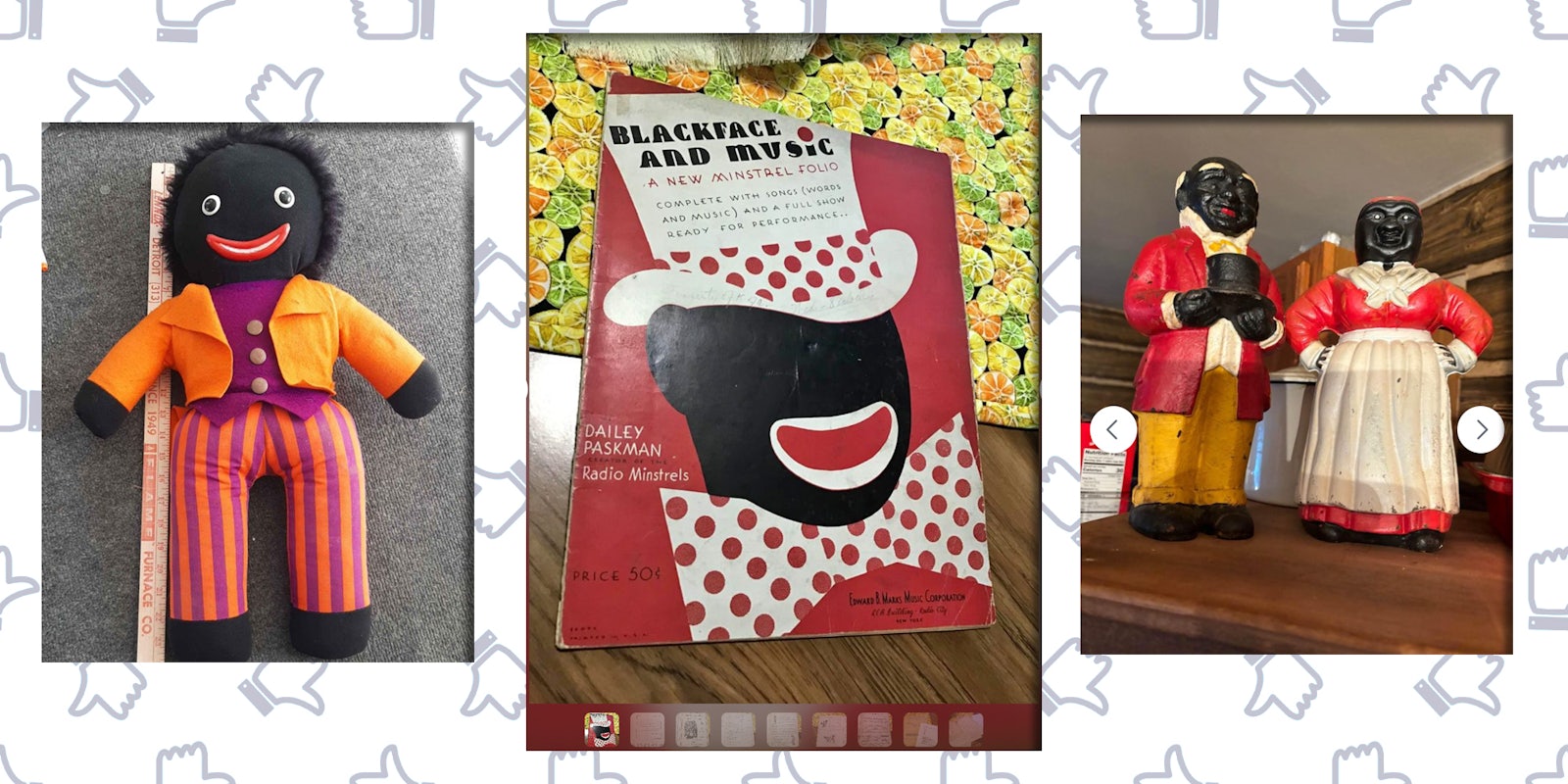Facebook Marketplace is awash in racist caricatures.
Searching on the massively popular online marketplace for “Black Americana” reveals items that depict minstrel caricatures intentionally harkening back to American slavery and the Jim Crow era—from a “Mammy/Aunt Jemima pot holder” to a Black cast iron lawn jockey to a 1940s advertisement that shows five men wearing blackface.
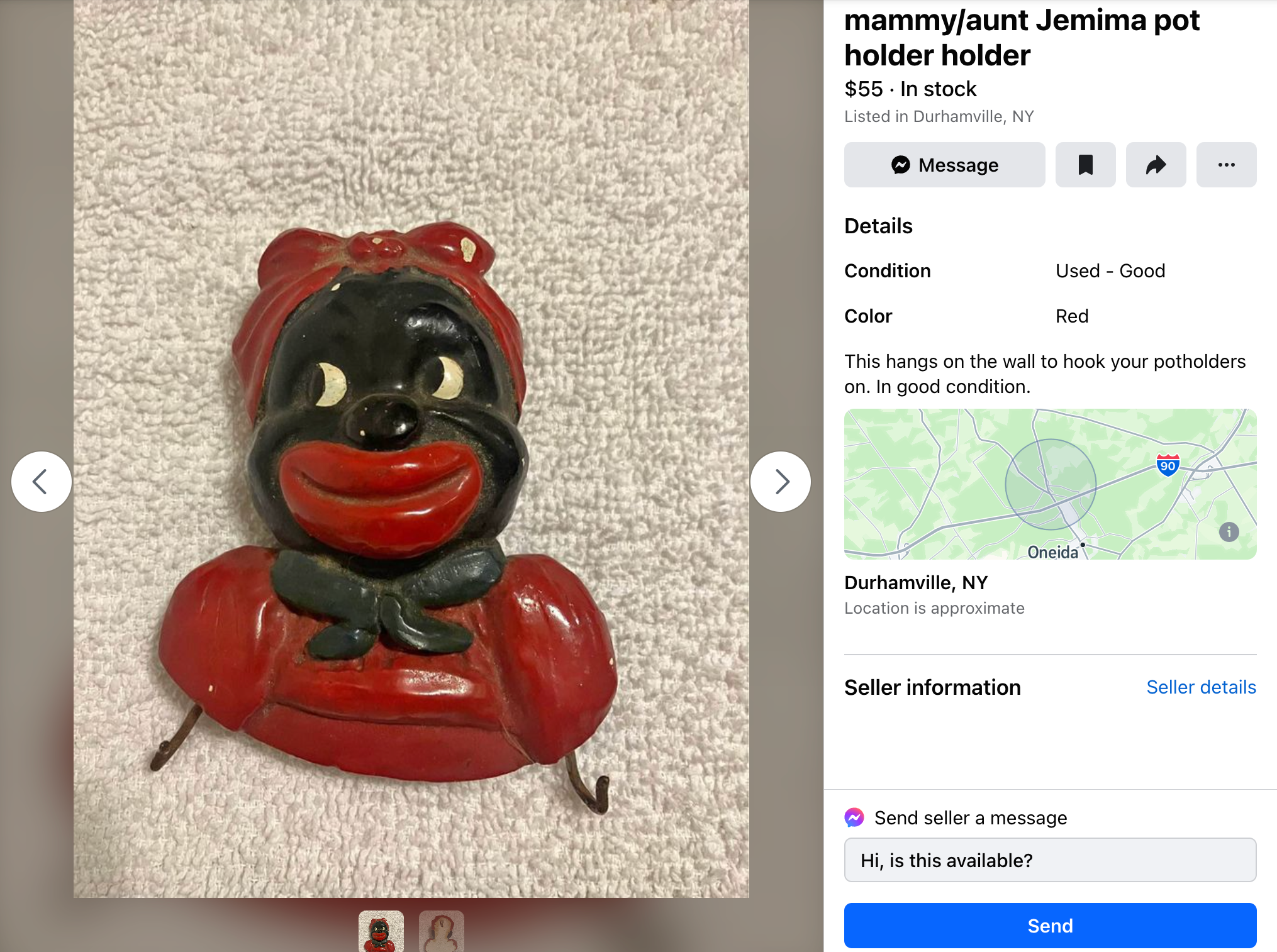
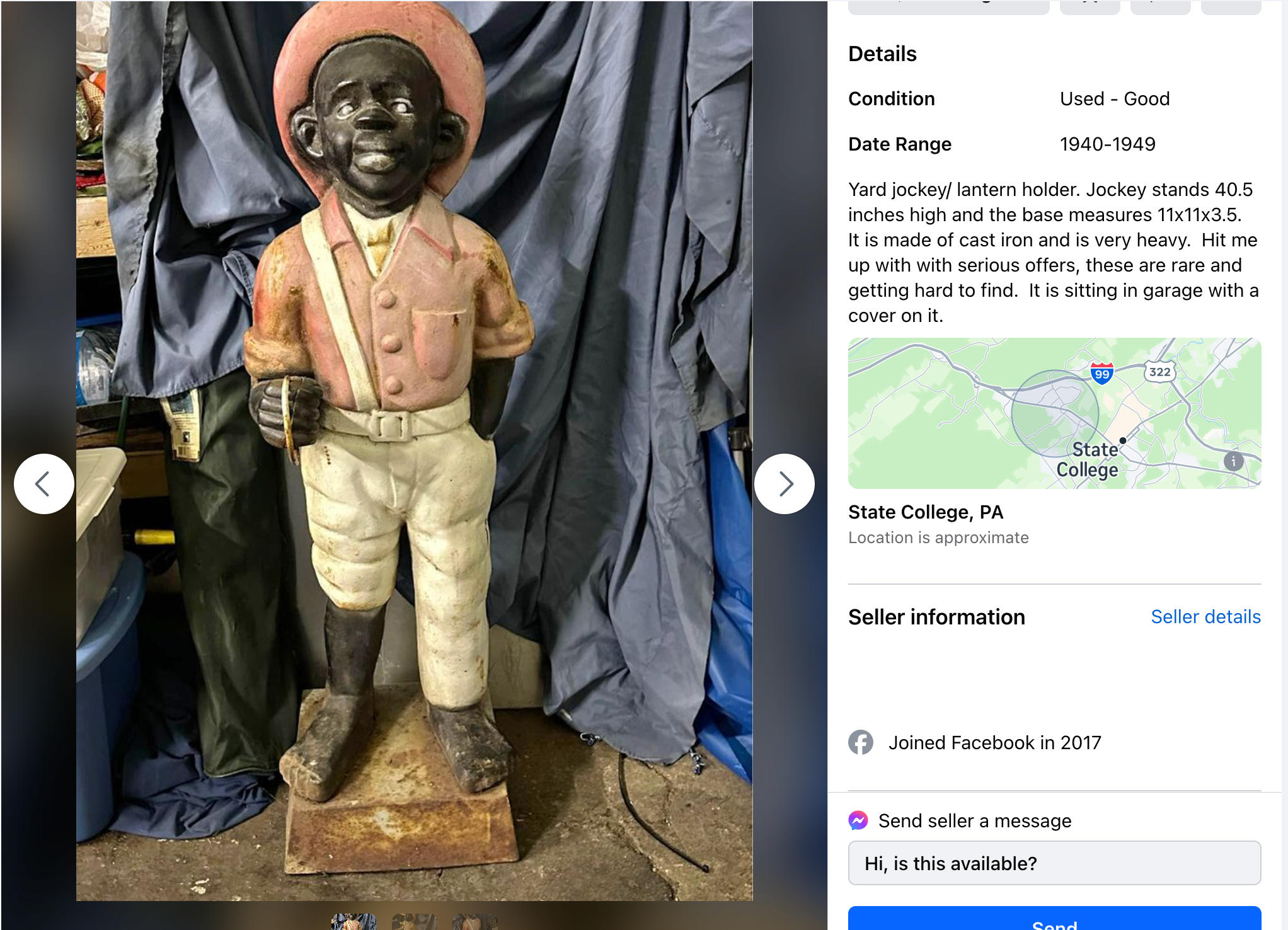
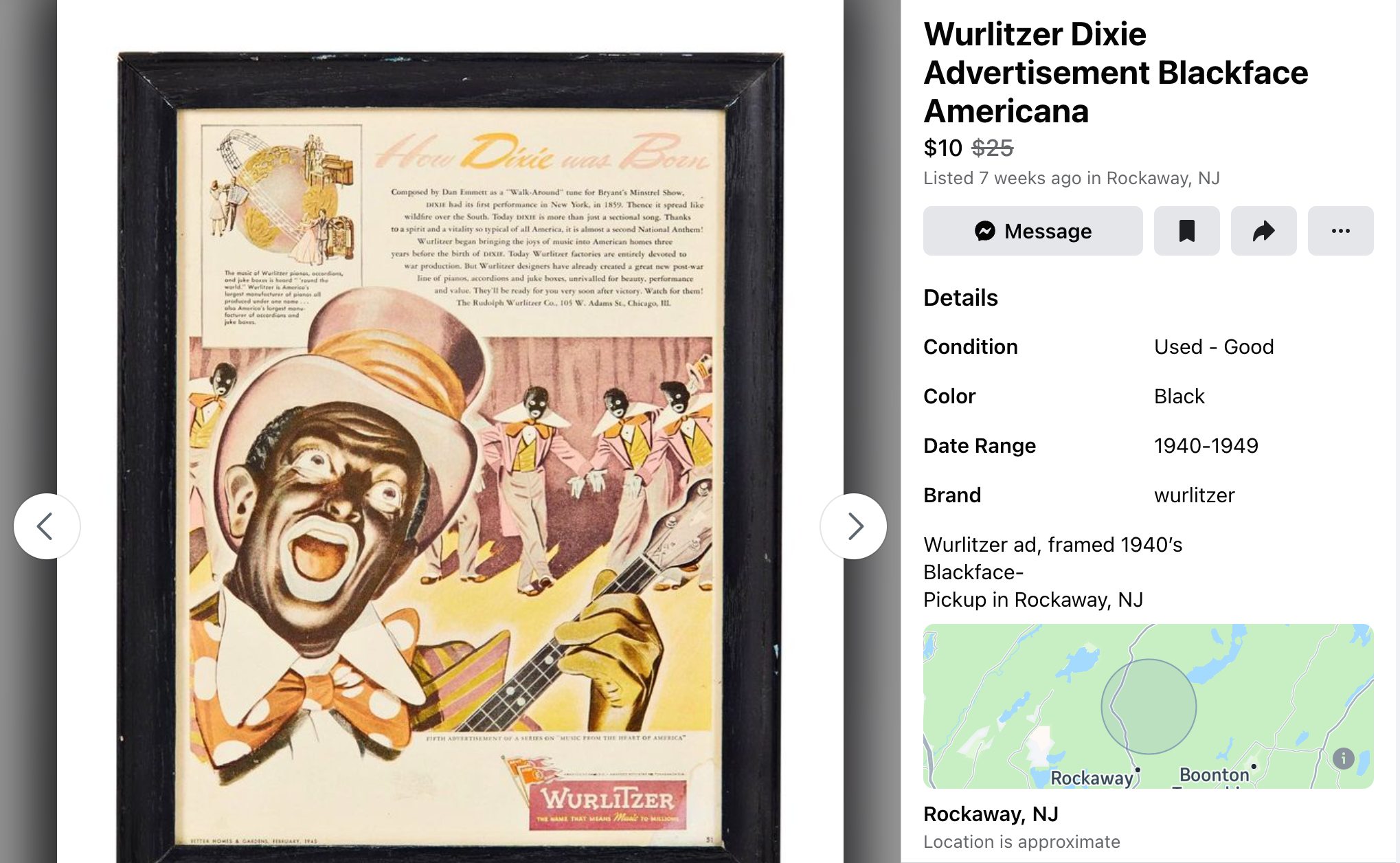
In an investigation of listings on Facebook Marketplace, the Daily Dot found over 200 cookie jars, dolls, cartoons, home decor, and other items that concretize harmful and discriminatory tropes and portrayals of Black people.
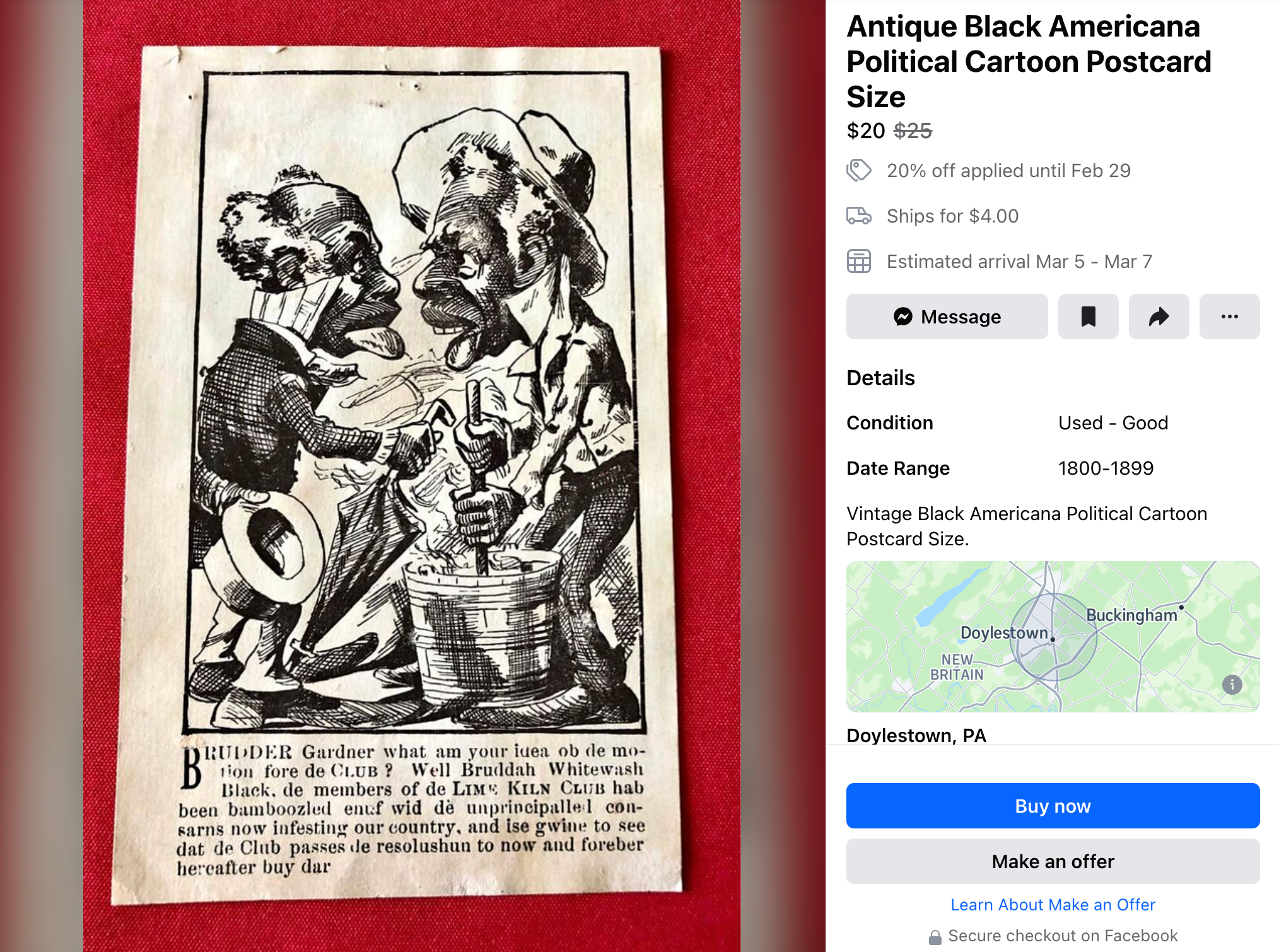
These objects were born of historically racist intentions, designed to mock and dehumanize Black people and have sparked outrage and protest.
In March 2023, Black Milwaukee residents protested an antique store that sold racist memorabilia, like Pickaninnie and Mammy items, which the Daily Dot also found on Facebook Marketplace. Others have launched personal crusades: Many Black people buy items to take them off the market or collect them as a way to reclaim the cruelty they represent.
But a massive, hard-to-track market exists online. And on Facebook, racist memorabilia is sold alongside vintage clothing, gently used furniture, and benign tchotchkes.
Facebook Marketplace launched in 2016 as a way to streamline transactions that were already taking place on the social media platform. Now, it has over 3 billion monthly users.
Branded as an easy way to “find new things you’ll love, and find a new home for the things you’re ready to part with,” Marketplace allows users to browse items near them or search for specific items they’re looking for—even if they are for sale by a Facebook user in another country.
At the time, TechCrunch called Marketplace “a friendlier Craigslist,” as Marketplace connects buyers and sellers through their Facebook profiles, rather than anonymous site usernames.
Like Facebook and Meta, Facebook’s parent company, writ large, Marketplace has discrimination policies. Users may not refuse to transact with others based on their “race or color,” “national origin,” “sex or gender,” and other identifying factors. Items also may not be approved by Facebook moderators to be sold on Marketplace if they violate the site’s community guidelines—which include prohibitions on hate speech and violent and graphic content.
Additionally, Facebook users cannot sell “misleading, violent, or hateful” products on the site, which includes “literature, memorabilia, symbols, and slogans associated with extremist or racist ideologies.”
The platform’s commerce terms state “failure to comply with our policies may result in a variety of consequences,” which includes having one’s listing removed and suspension from all of Meta’s commerce features, like Instagram Shopping and WhatsApp Shop. Facebook also reserves the right “to reject, approve, or remove any listing for any reason at any time, in [its] sole discretion.”
But just as Facebook’s moderators struggle to control content on a large scale, Black Americana products and racist memorabilia constantly slip past Facebook’s guidelines on Marketplace.
Meta did not respond to a request for comment from the Daily Dot.
These objects were mainly created by white people, based on racist representations of Blackness that spread shortly after the abolition of slavery, designed to continue the emotional subjugation of Black people, Isabella Britto, a curator at the International African American Museum, told the Daily Dot.
Many of the racist items the Daily Dot found on Facebook Marketplace are labeled as antique (over 100 years old) or vintage (older than 20 years old).
Some item descriptions boast products made in the late 1800s.
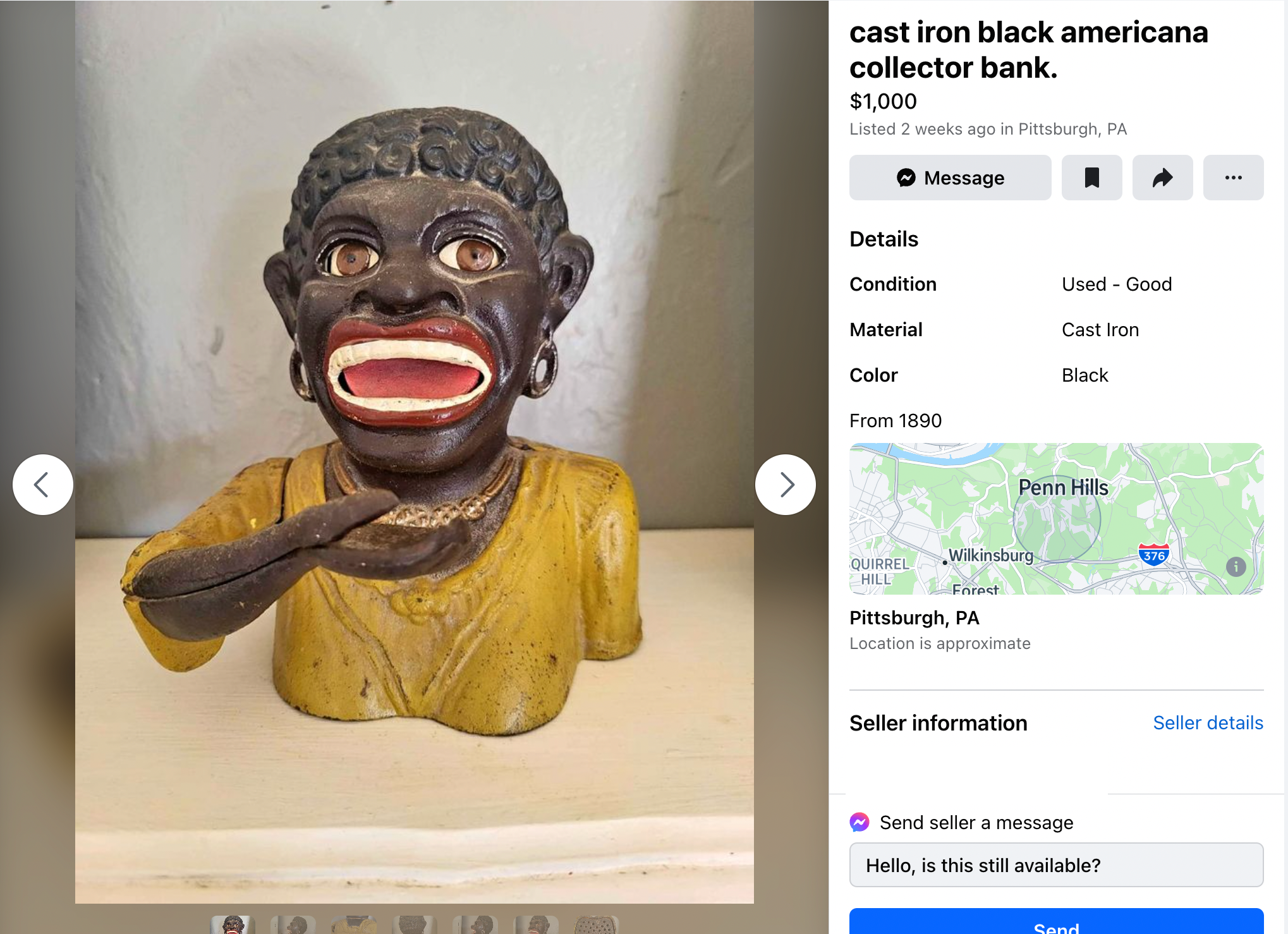
“The representations were sort of a way to create and maintain an idea of race and idea of Blackness,” Britto said. “They were able to keep this idea of Black people as unintelligent, as very jolly, as subservient alive.”
As Black people gained legal freedoms, white people needed ways to push back on that progress outside the strictures of the law. Thus, racist caricatures like Mammy, Tom, Little Black Sambo, the Golliwogg, and Pickaninnies rose in popularity.
Each item, all found on Facebook Marketplace, has its own history and significance.
Some representations focus on equating Black people with servitude, like Mammy and Tom, who are also referred to as Aunt Jemima and Uncle Moses.
The Mammy caricature, a Black woman whose hair is usually wrapped in a scarf and dressed in a matronly manner, is a slave cook who, in many depictions—such as the recently removed Confederate Monument at Arlington National Cemetery—is a “faithful slave” treated kindly by her masters. Tom, a Black man with white hair in a red suit, is Mammy’s male counterpart, a loyal and happy house slave. Mammy’s other male counterpart is a chef named Pappy.
“I have an old antique vintage black Americana, Aunt Jemima, Mammy and pappy pottery,” one seller wrote in a Marketplace listing for Mammy and Pappy salt and pepper shakers the Daily Dot found on Feb. 27, 2024. “This would make a nice addition to your black Americana collection or your kitchen collection or you can use it!”
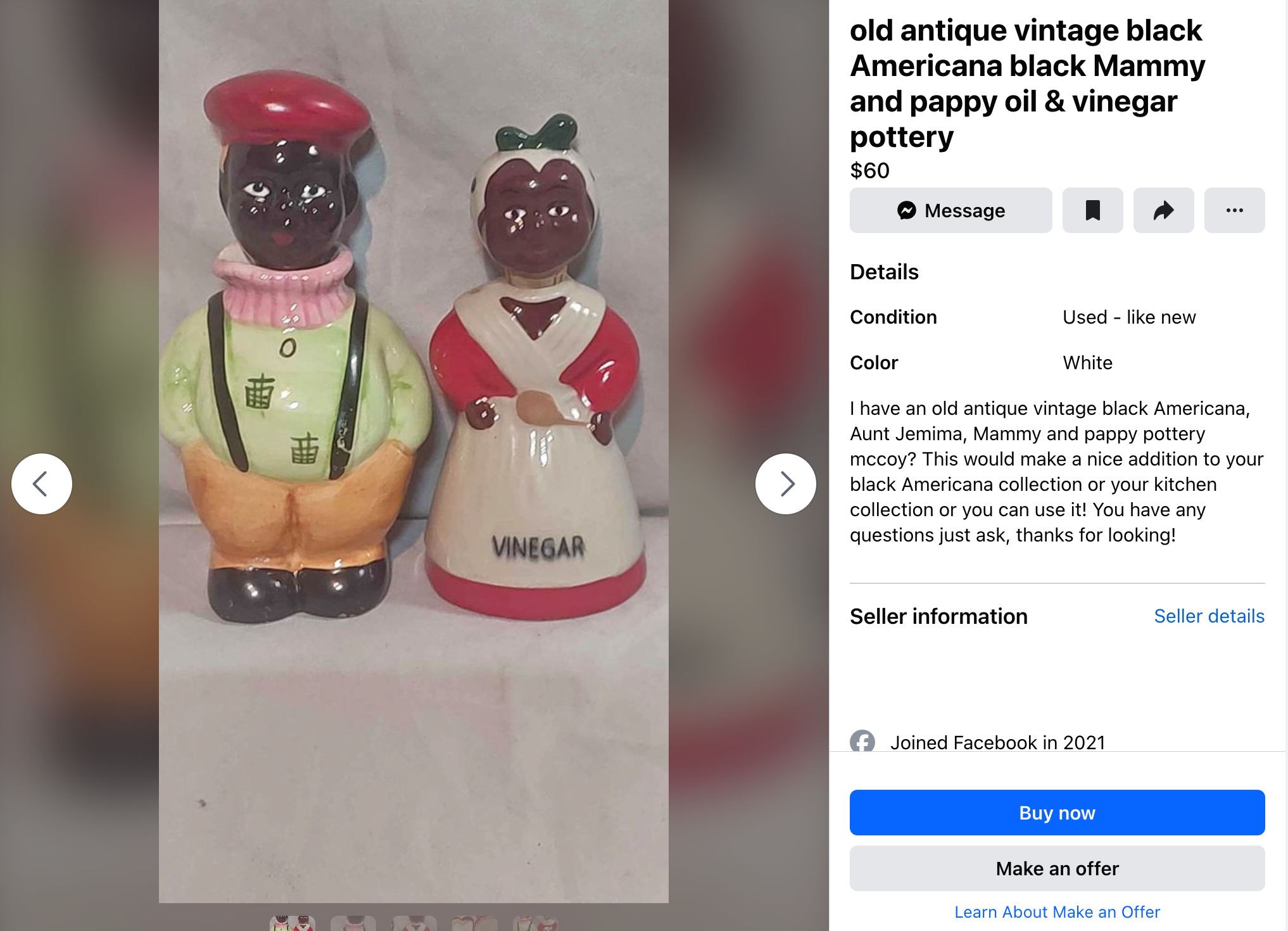
The Pearl Milling Company’s old brand mascot, Aunt Jemima, is based on the Mammy caricature, and both Uncle Ben of Ben’s Original Rice and Rastus, a Black character that was the mascot for Cream of Wheat, are based on Tom.
The Pearl Milling Company, Ben’s Original Rice, and Cream of Wheat all removed their Black mascots in 2020 and 2021 after criticism that the depictions are racist.
Both Mammy and Tom—sometimes listed on Facebook Marketplace as Aunt Jemima and Uncle Moses—have been immortalized into coin banks and statues. Mammy and Tom also frequently show up as salt and pepper shakers.
Mammy cookie jars were mass-produced in the 1890s, though the Mammy and Tom caricatures were first depicted during slavery.
Some descriptions of the listings written by sellers nod at denying agency to and owning the caricature items were based on.
“Black Americana Bellhop Statue,” a seller wrote in a Marketplace description of a statue that features a variation of the Tom caricature. “Great addition to your man cave, office, hotel or motel, living room… Anywhere you chose to place him.”
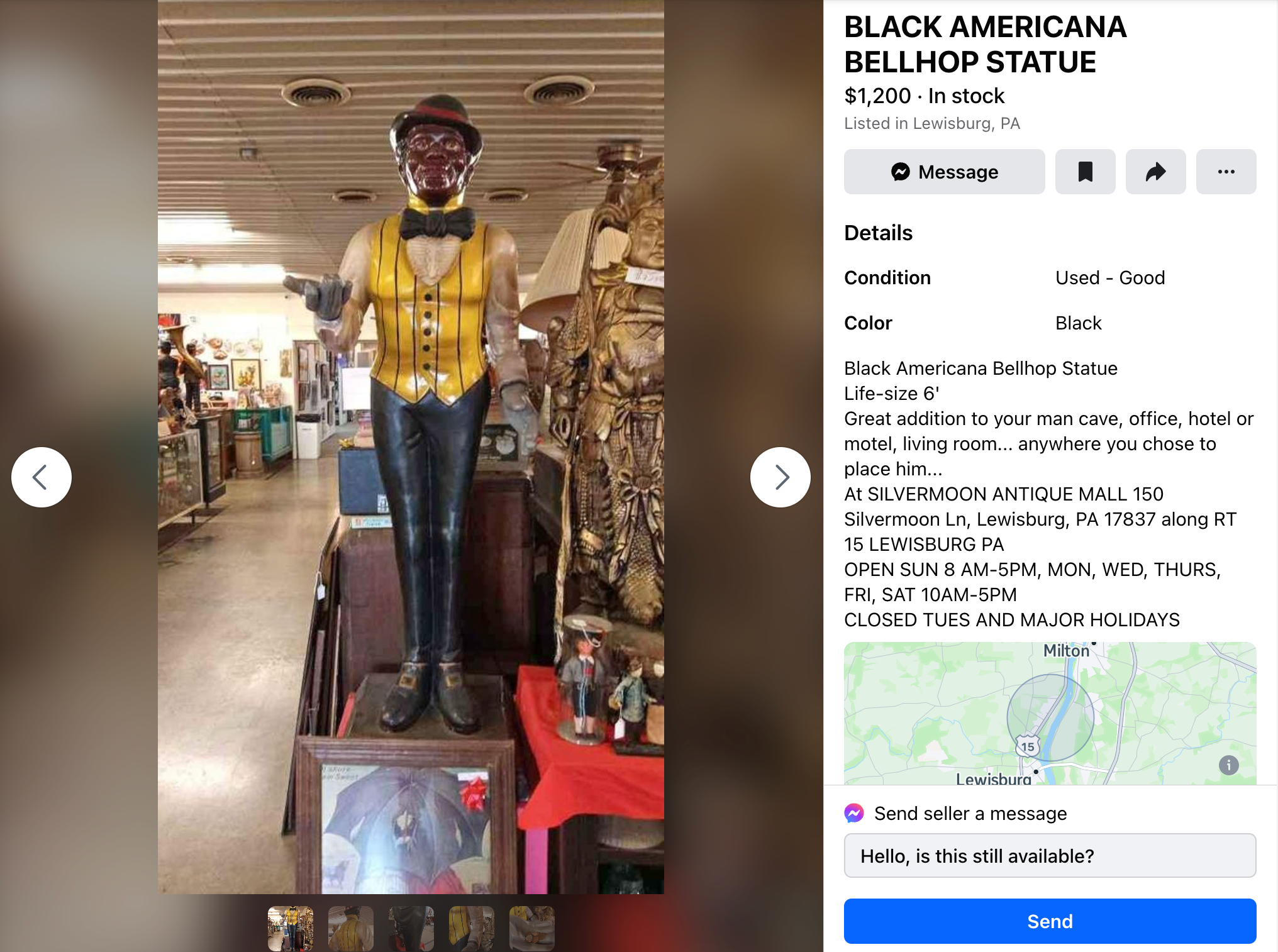
As listings expire and are purchased frequently, the Daily Dot’s findings are only a sample of what exists online. However, over the course of two weeks, the Daily Dot found 130 Facebook Marketplace listings that included Mammy products, many of which were priced between $20 and $300. The Daily Dot also found 19 listings that included Tom, priced between $24 and $300.
One Mammy listing also included an old box of Aunt Jemima pancake mix, too. It sold for $20.
The Facebook user who sold it identified himself to the Daily Dot as the first person to sell “Black Americana” on Marketplace. He also said he has been selling such items for 13 years.
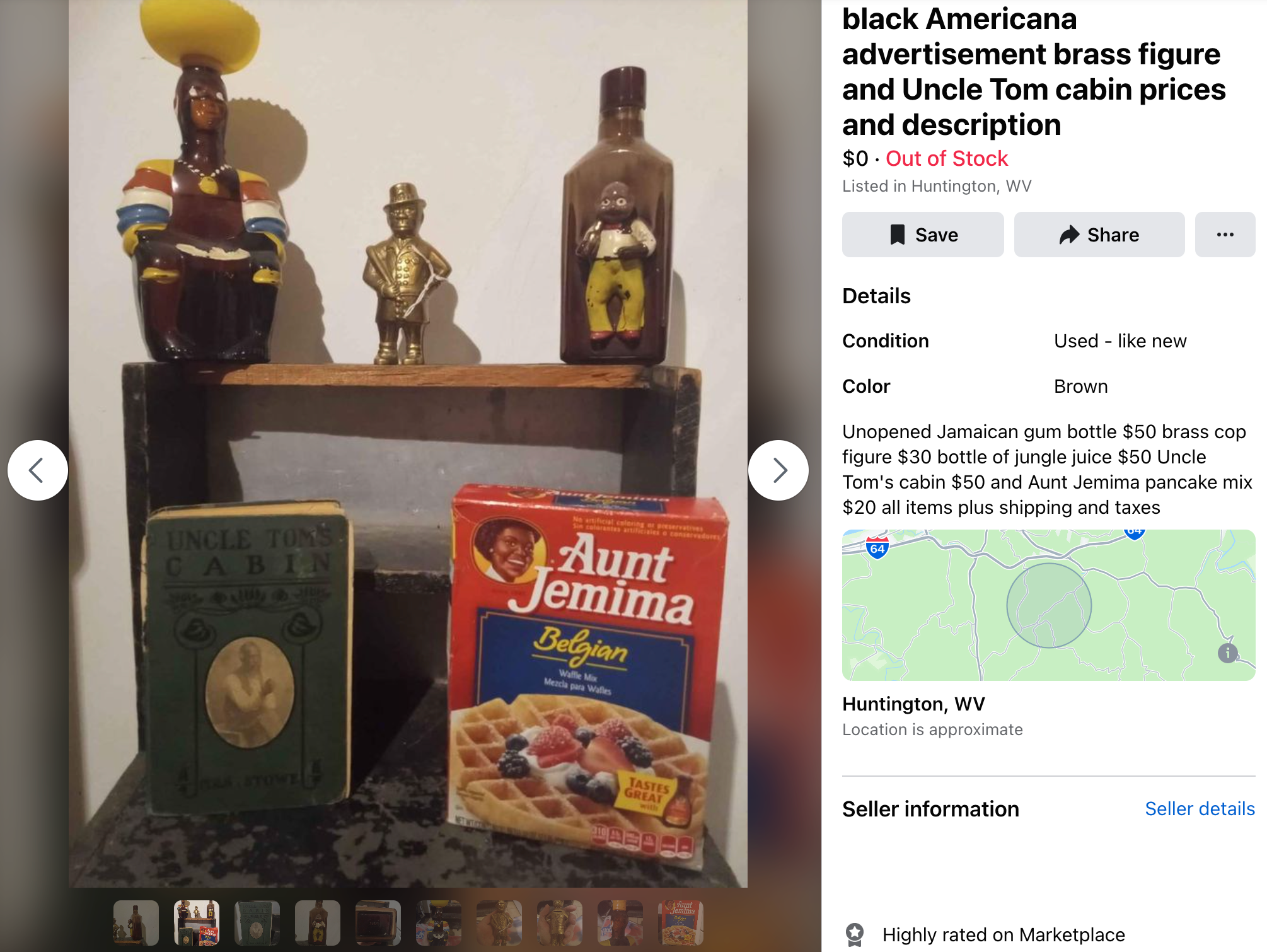
Others listings the Daily Dot found depict child characters or children’s toys. Pickaninnies are Black children who have “bulging eyes, unkempt hair, red lips, and wide mouths into which they stuffed huge slices of watermelon,” as described by the Jim Crow Museum. The word “pickaninny” means a small child, though it is usually used in the U.S. to refer to Black children and is considered dated and offensive. It comes from the Spanish word “pequeño,” which translates to “little.”
These children are portrayed as salt shakers, glass figurines, coin banks, and in food advertisements.
The Daily Dot found 10 Facebook Marketplace listings that depicted Pickaninnies which were priced between $30 and $100.
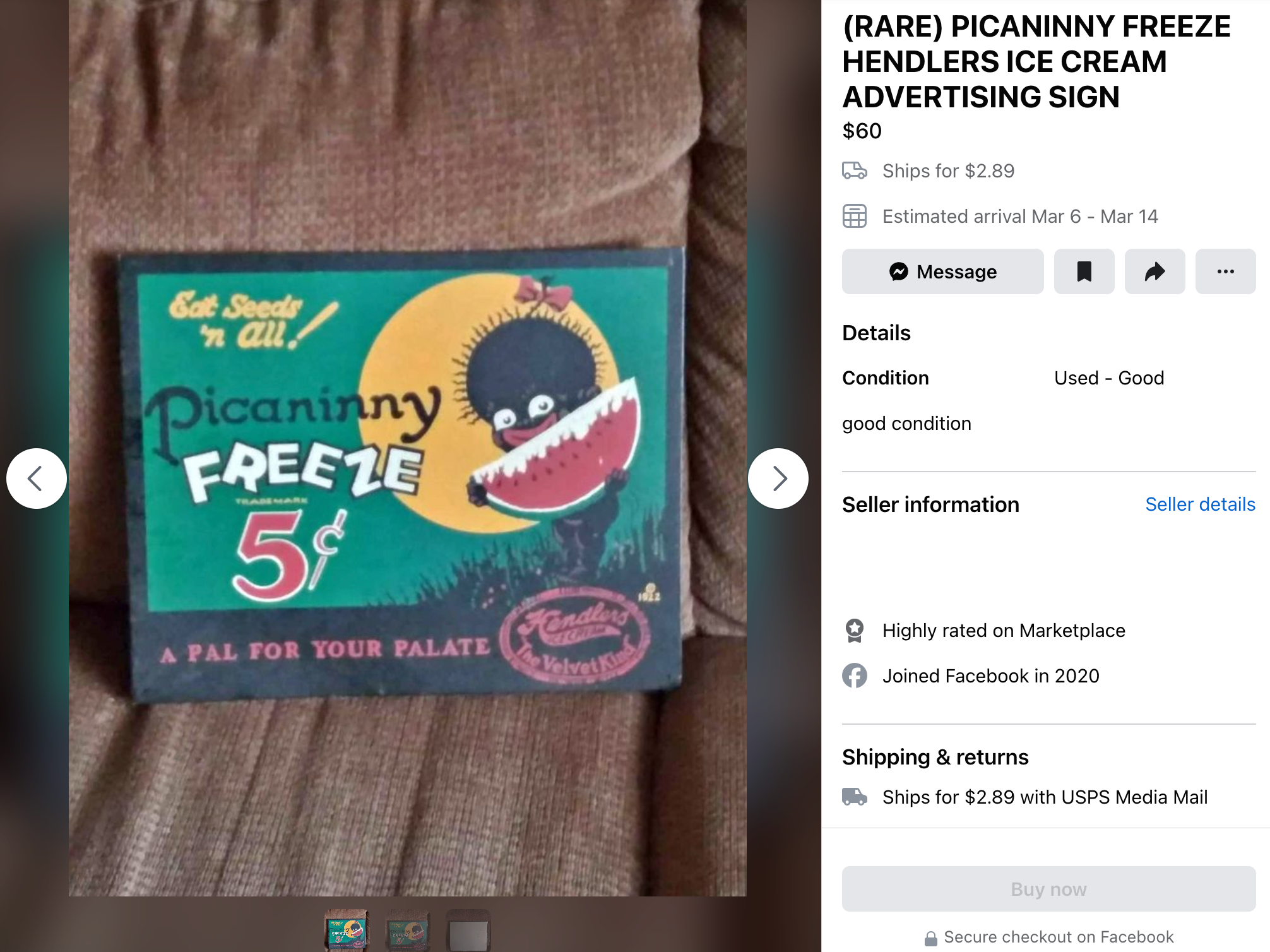
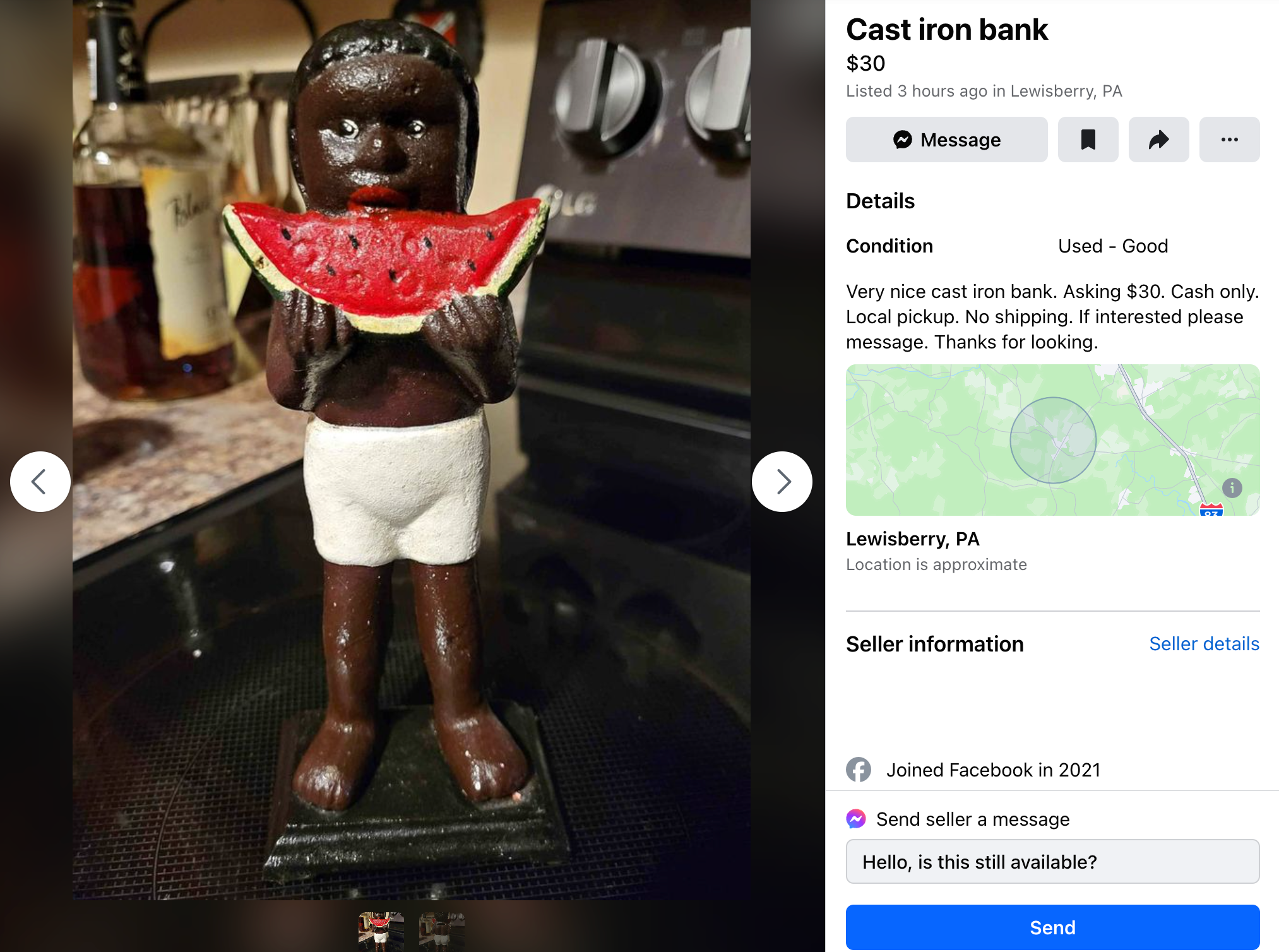
Or Little Black Sambo, a racist caricature based on an 1899 children’s book about a young Indian boy. Although he wasn’t originally Black, illustrations created in the late nineteenth and early twentieth centuries of Sambo resembled the Pickaninny caricature, and thus Sambo became a racist caricature itself. “Sambo” is also a racist term used to refer to Black men.
“Sambo tin metal gun target game,” a seller wrote in the description of a Little Black Sambo dart game in which players shoot a photo of the Black boy. “Average condition but has the gun and 2 darts.”
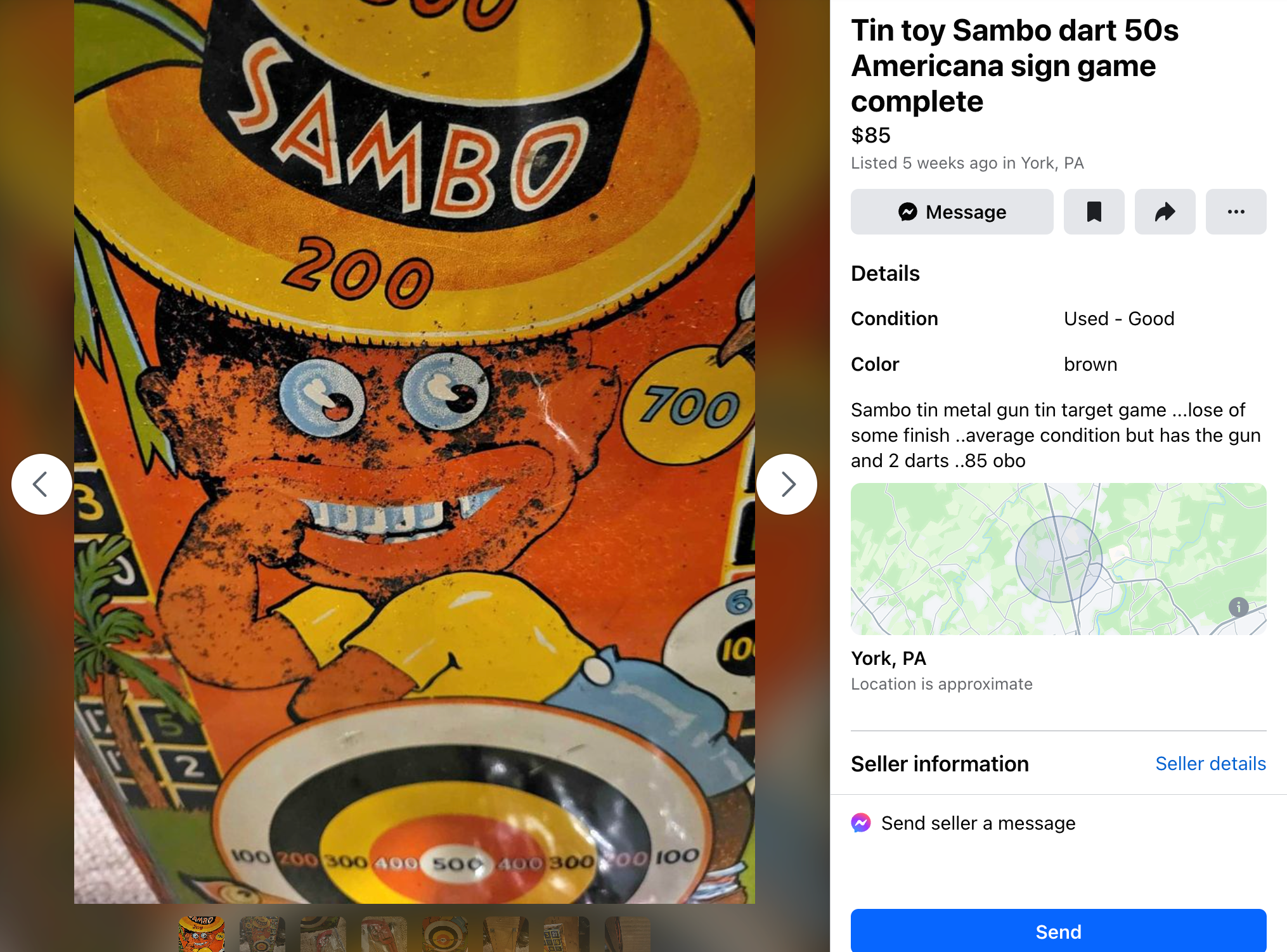
The Daily Dot found nine Facebook Marketplace listings that included portrayals of Little Black Sambo, which included multiple listings for a Little Black Sambo dart game that depicts the character with large white eyes, exaggerated red lips, and a wide mouth. The Little Black Sambo listings included in the Daily Dot’s investigation were priced between nine dollars and $250.
“What I’ve seen through my research is that the imagery can be very violent and extremely racist,” the International African American Museum’s Britto told the Daily Dot. “Even though the story doesn’t have to be inherently racist.”
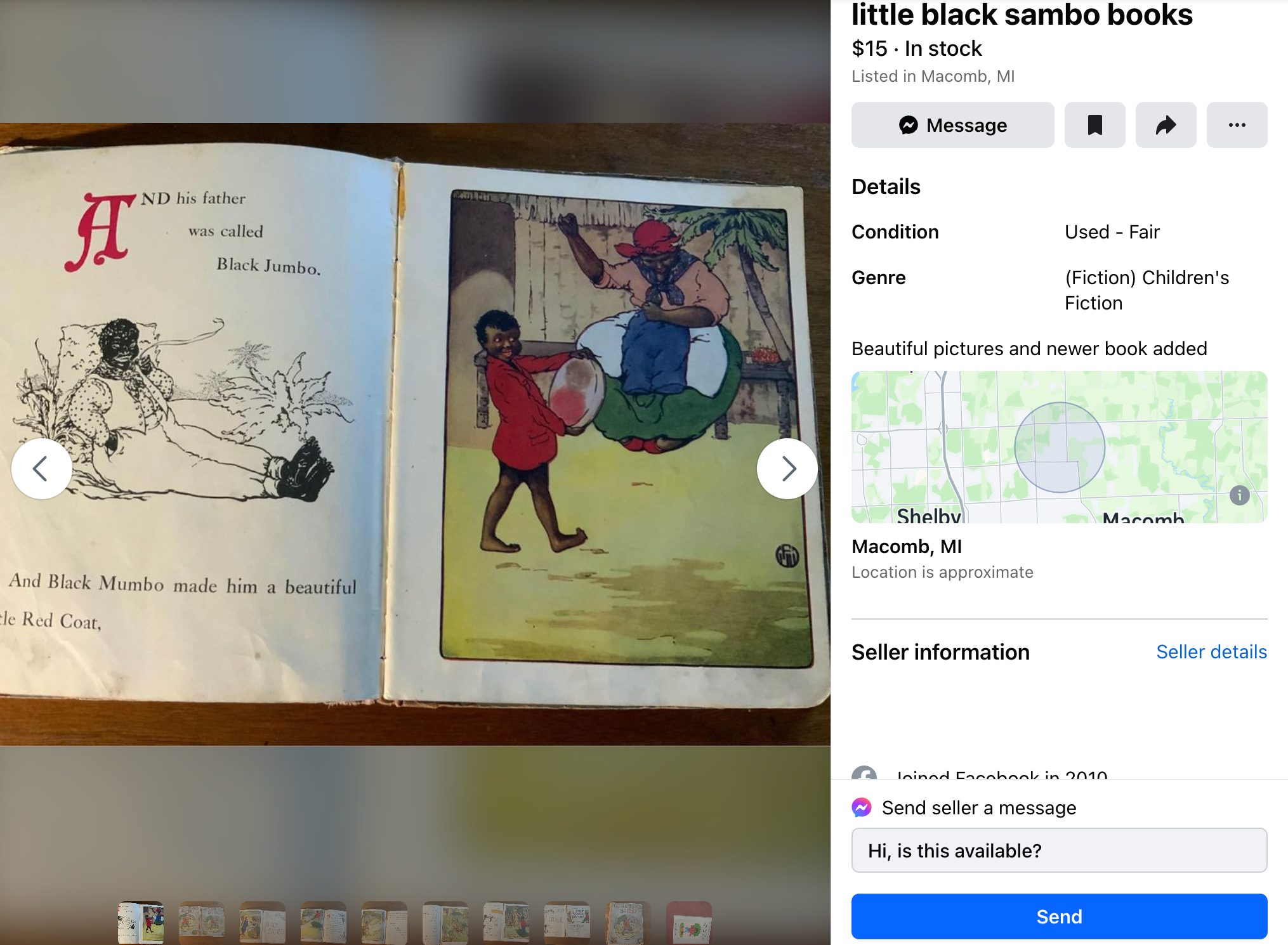
There’s also the Golliwogg, a Black doll with dark skin, white eyes, red lips, and “frizzy hair,” which was created in the U.K. and based on American depictions of Blackface. The dolls were at the center of controversy in England last year when police seized a pub owner’s collection of Golliwogs after the display was reported as a hate crime.
As a result, many online retailers including Amazon and eBay took Golliwog listings down from their sites. But not Meta.
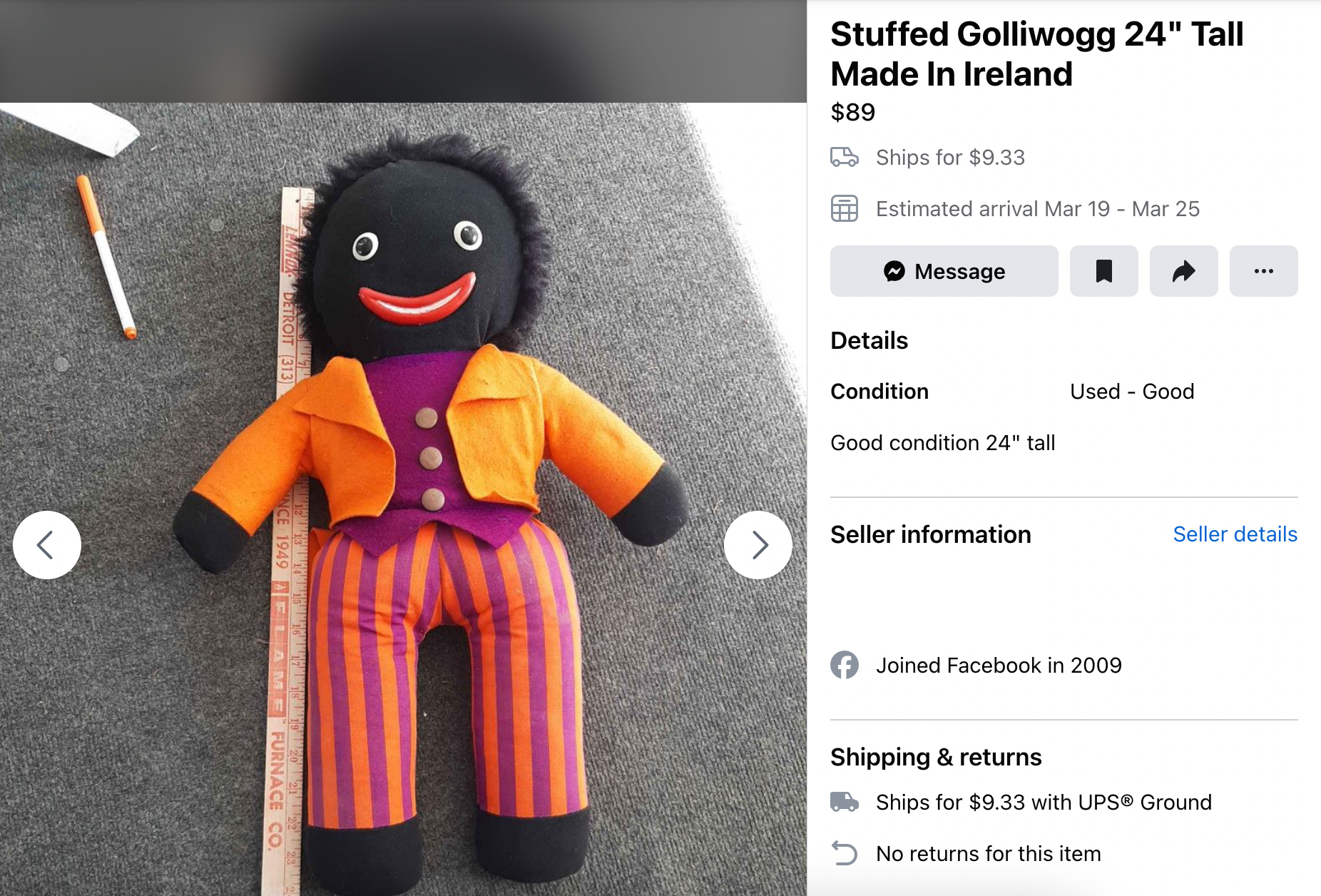
The Daily Dot found 17 listings on Facebook Marketplace that included Golliwog dolls or Golliwog products, like books, art, perfumes, and marionettes. The Golliwog dolls the Daily Dot found were priced between $25 and $350, and Golliwog paraphernalia cost as little as $8 and much as $220.
One Golliwogg listing seems to acknowledge the doll’s racist origins: “Black Americana Black face minstrel,” is included in one listing’s name. In the item’s description, the seller called a Golliwogg children’s picture book “a fabulous 1895 book.”
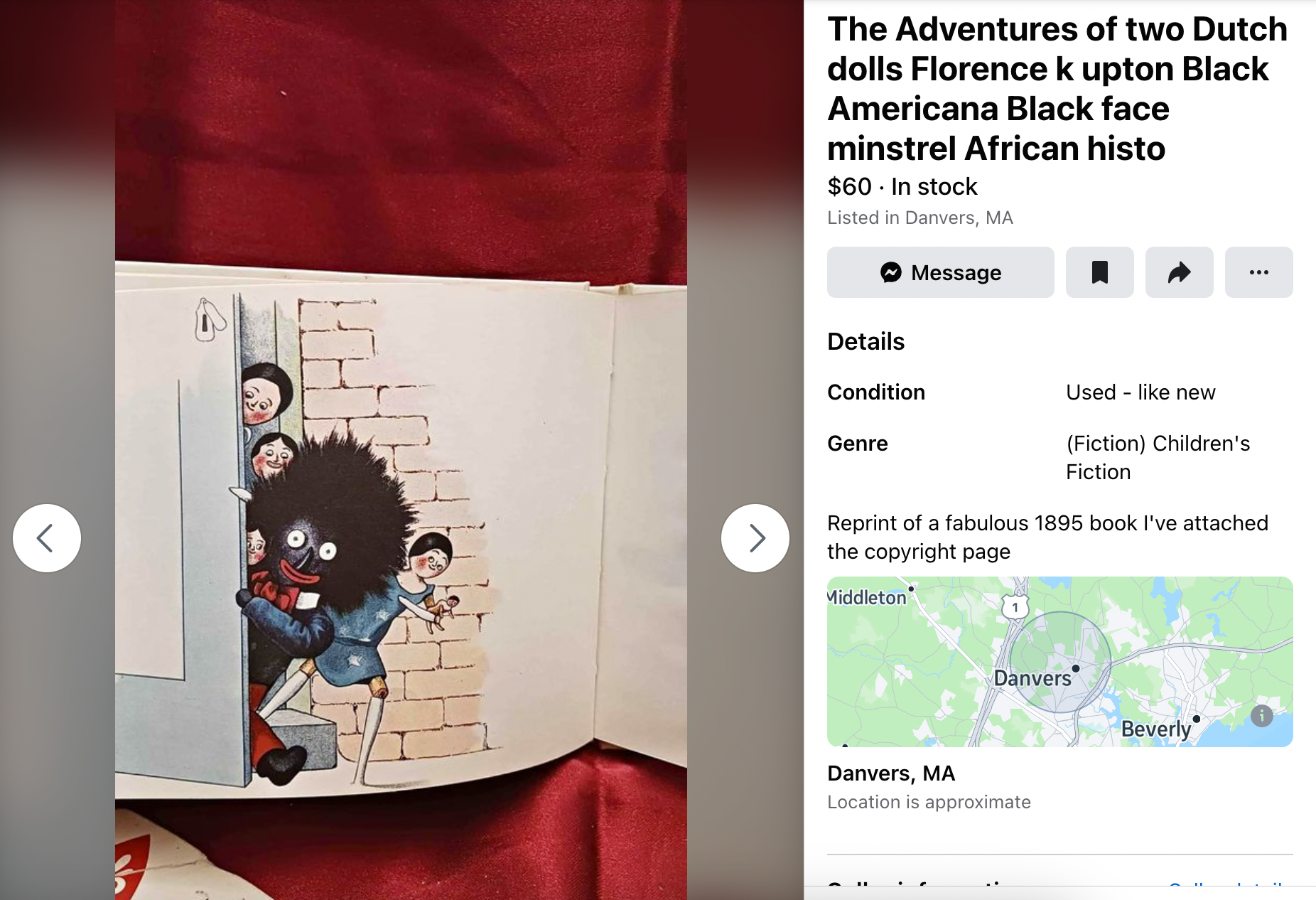
But other items don’t hide behind children’s stories or folklore. These items are intentionally cruel, Dr. Steven Reich told the Daily Dot. Reich is a professor of African American studies at James Madison University and the editor of The World of Jim Crow America: A Daily Life Encyclopedia.
Examples of such items found by the Daily Dot include a guide to putting on a minstrel show, a program for a minstrel show put on in 1951, minstrel performers depicted as monkeys, a racist fishing lure, and multiple thermometers that include racist depictions of Black toddlers with their backsides exposed called “Diaper Dan.”
“An antique piece of history,” a seller wrote in the description of a listing for “Blackface and Music: A New Minstrel Folio.” The Daily Dot found the item on March 6, 2024. “A full show ready for stage performance.”
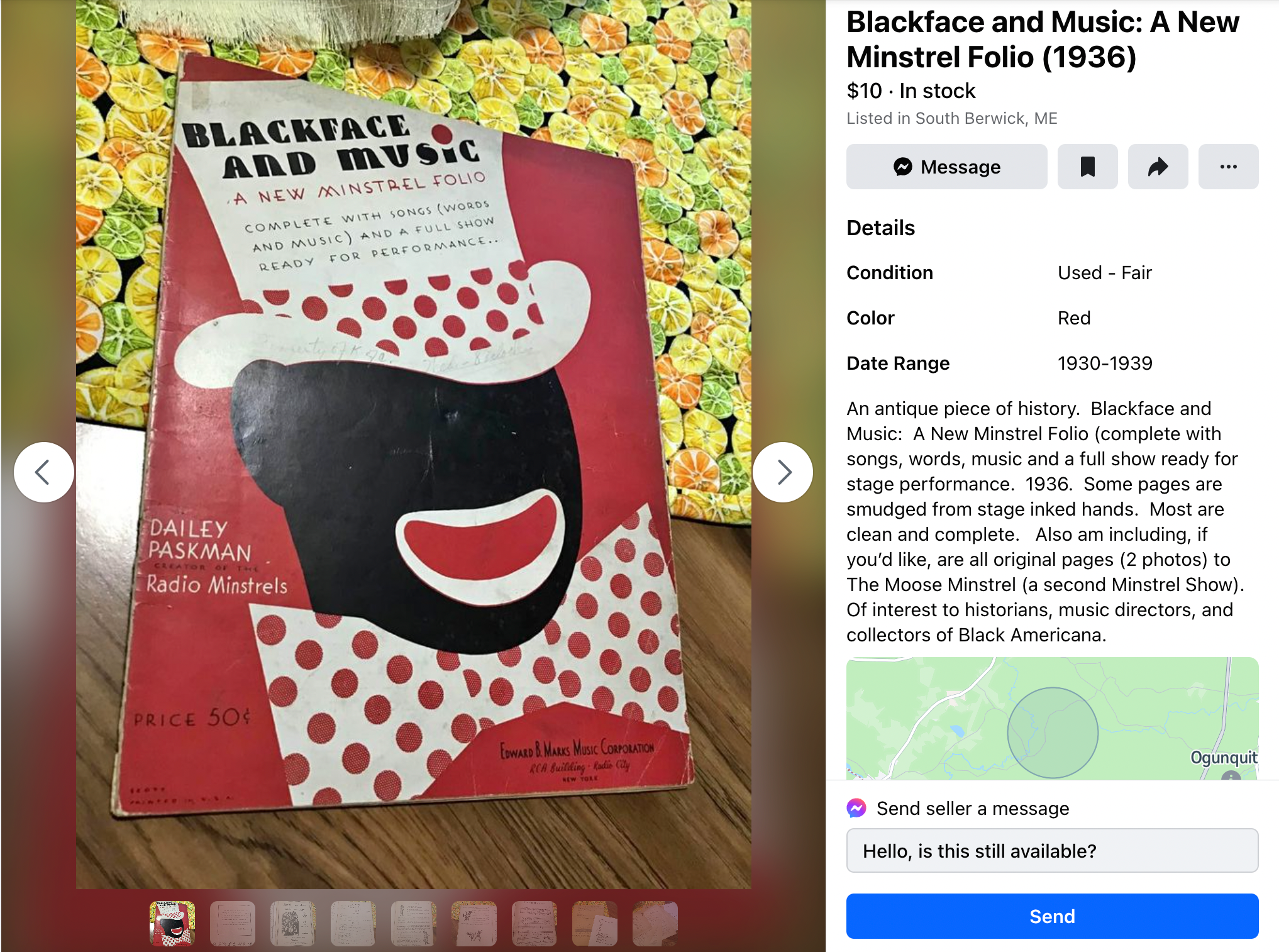
“These 3 little Minstrels will hold your flowers in the bud vases on their backs [and] play songs in your head,” a seller wrote in the description for the minstrel monkeys listing the Daily Dot found. “Imagine your friends when they see these cute little Monkeys at your house.”
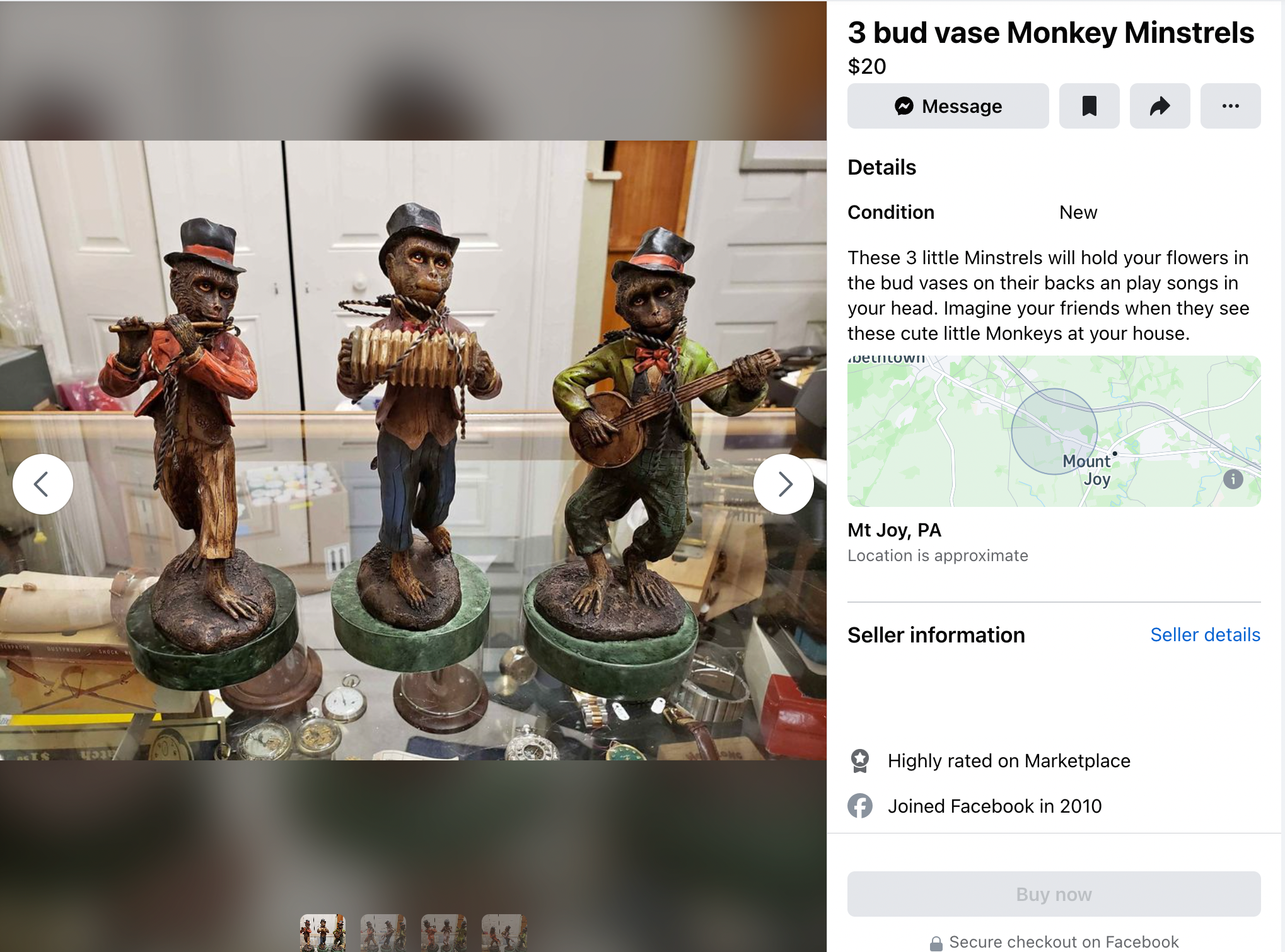
Reich told the Daily Dot the objects are “reminders of the horrors and of the past, and the cruelty,” and that Jim Crow had a material component. What’s more, the items are still sold because they satisfy a sense of racist nostalgia.
“You know, a simpler time before we all had to be ‘woke’ and everything like that,” Reich explained to the Daily Dot, using the word the right has made its calling card. “Part of the attraction to these objects now, is because you can buy one and say, ‘Look, I’m not woke.’”
Professor Deidre McCorkindale told the Daily Dot that in addition to racist nostalgia, racist memorabilia sells simply because there’s money in it. McCorkindale teaches history at Ontario’s University of Guelph and is an expert in the North American Jim Crow era.
“Collectors market anything that is considered taboo,” McCorkindale said. “Is racism at the root of this? Absolutely. But a big part of this is money making.”
McCorkindale herself owns racist memorabilia that she uses to teach her students about the extralegal realities of Jim Crow. She also believes the world shouldn’t be rid of such items because it’s important there’s proof of the racism and dehumanization it represents—but she doesn’t think they should be sold for profit on Facebook Marketplace.
“It’s really creepy to think of aspects of your people’s trauma being sold,” she said.
The internet is chaotic—but we’ll break it down for you in one daily email. Sign up for the Daily Dot’s web_crawlr newsletter here to get the best (and worst) of the internet straight into your inbox.

